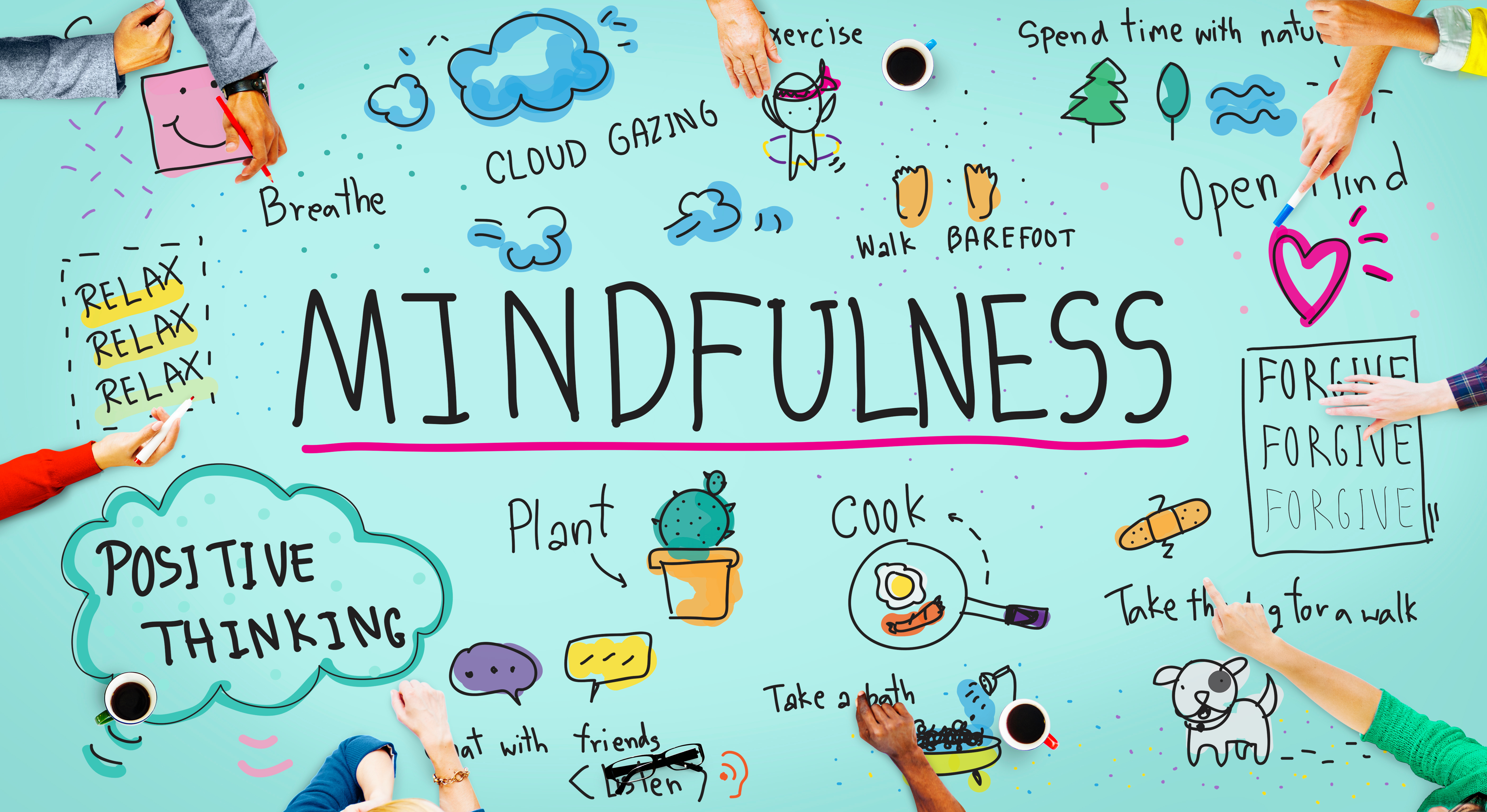Welcome to thoughtful, organic beauty
Hello Joyous is an organic, plant-based, sustainable beauty brand here to bring more joy to your day.
In today's fast-paced world, experiencing bouts of stress and anxiety has become all too common. With increasing demands on our time, finances, and resources, finding our way back to a state of peace and calm can be challenging. However, by incorporating simple diet and lifestyle habits, we can provide our bodies with natural stress relief. I know I've benefitted greatly from adopting these stress managment habits are part of my daily routine.
When we perceive stress, whether from a tight deadline, traffic, or financial worries, our bodies react as if facing a life-threatening situation, triggering the fight, flight, or freeze response. This activates the sympathetic nervous system, leading to the release of cortisol, a stress hormone from our adrenal glands.
Cortisol affects everything from mental health , to digestion to the health of our skin and hair , making it crucial to take regular steps to manage stress and its more intense cousin, anxiety.
In this post, I share my top 8 tips to help you manage stress and anxiety so you can feel calm, happy, and glowing from head to toe!
For a full list of podcast resources, scroll to the bottom.
1. Establish a healthy sleep routine

When it comes to managing stress and anxiety, it’s hard to tackle either when you’re feeling sleep-deprived. It can also be a bit of a catch-22: you can’t sleep because of stress or anxiety, which makes you feel worse, then you can’t sleep, and so on!
I’ve shared some resources on natural solutions for sleep , h erbs and supplements, and simple hacks to improve your sleep quality . However, my top tip is to start establishing a bedtime routine that works for you to help you unwind from the busyness of your day. Each person will have their own process, but I find turning down the lights in the evening, wearing blue light blocking glasses to help with melatonin production, putting my phone away, and sipping on a cuppa calming TLC Tea while reading helps me leave behind the stress of the day and prepare for deep and healing rest. As a bonus, the organic herbs in this special tea blend also help the body cope with stress and anxiety!
2. Reduce caffeine intake
I wanted to put this point right after the first one because not only can caffeine interfere with your deep sleep, it can also exacerbate underlying feelings of anxiety. That’s because caffeine can stimulate your adrenal glands to produce cortisol, a stress hormone, which can make you feel jittery and anxious. If you are going to sip on a morning cup o’ joe, try to have it after you’ve eaten to decrease the potential side effects.

If you are struggling to get good sleep and an afternoon coffee is your go-to, try subbing it out for a low caffeine green or white tea. This tea also contains l-theanine , which can counteract the effect of caffeine and have a calming effect on the body, while improving focus. It can take some people longer to metabolize caffeine, so if that’s you it might be worth stopping any caffeine intake after 1pm. I’ve shared some natural ways to boost energy here!
3. Eat stress-busting foods
It’s likely no surprise that one of my top tips includes incorporating delicious, stress-busting foods into your diet. I believe food is one of the pillars of joyous health! Vitamin C helps to nourish, repair and restore the adrenal glands. The adrenals are those little glands that sit atop your kidneys and pump out mainly cortisol, the stress hormone. The best place to get it is from your whole foods since it comes packaged with antioxidants and other nutrients that can help support your body during times of stress. Enjoy foods rich in vitamin C such as dark berries , broccoli , citrus , bell peppers , and cabbage.
Another nutrient you’ll want to get from foods is zinc, since a deficiency in this mineral can contribute to anxiety symptoms. You can find zinc in pumpkin seeds , oysters, and other nuts and seeds! For a more in depth exploration of foods that can contribute to or decrease anxiety check out this great podcast episode with Dr. Ellen Vora!
4. Boost resilience with herbs
I love writing about the health benefits of healing herbs , some of which are especially great for boosting resilience and managing anxiety. Adaptogens are natural substances derived from plants or botanicals that help the body adapt to stress.
Hence the name "adapt-ogens" and project a normalizing effect on bodily process.
Their properties are known to have a direct effect on the adrenal glands, an integral part of the endocrine system, that secrete stress-coping hormones such as cortisol, adrenaline (epinephrine), norepinephrine and dopamine. Some of my favourites for stress and anxiety management include:
You can read more about adaptogens here and my list of the six best herbs for stress relief and relaxation here . I also recorded an excellent podcast episode with Dr. Erik Korem on boosting resilience and managing stress that you can listen to here.
5. Try natural supplements like Magnesium
While I always try to get as much nourishment and support from the foods I eat and teas I drink as possible, sometimes we need a little extra boost, especially when you’re dealing with stress and anxiety. That’s where supplements can help!
My number one recommendation for people feeling overwhelmed, anxious, or struggling with sleep is magnesium!
That’s because it gets drained when you are burning the candle at both ends so to speak. It also helps you get into a deep phase of sleep which is essential for the body to regenerate and repair. There are several different forms of magnesium , which I’ve written about here, so you can choose the right one for your needs.
Listen to this great podcast episode with Anxiety Nutritionist, Meg DeJong , for more tips and suggestions on supplements and habits to help support your body.
6. Try deep breathing exercises
A quick and simple way to help stimulate your parasympathetic nervous system and take you out of fight or flight mode and back to a rest and digest state is through deep breathing exercises. This is the one that Walker and I love to do , but there are many different styles you can try. The most important thing is to make sure you are breathing deep into your diaphragm and extending your exhale, since short, shallow breaths tell our body it’s time to be stressed!
7. Learn to say “No”
This one is a lot easier said than done, especially for the ladies out there. We are often socialized to say yes to everyone and to be helpful, which sometimes means that we put our own needs second, third, or last! While there are definitely commitments we have to show up for regularly, like work, child-rearing, or caretaking, there are often a lot more items in our calendars that aren’t actually necessary.
Take a look at your life and make note of the things you love to do, the things you have to do, and the things that are just taking up space, but are neither necessary nor filling your cup. See if you can start saying no more so that you don’t overextend yourself and end up pouring from an empty cup. There might be times when you have more capacity to take things on, but if you’re in a season of stress or anxiety, paring back your commitments can give you some space to breathe and relax.
8. Practice mindfulness

One of the goals of managing stress and anxiety is to notice and address it before it becomes overwhelming. That’s why I am such a fan of mindfulness practices that allow you to check into how you are feeling physically and mentally on a regular basis. It’s much easier to calm your nerves or soothe your anxiety when it’s a gentle whisper versus a mighty roar.
There are lots of different mindfulness practices you can try including everything from yoga to traditional meditation to mindfully eating or walking through the forest. The important thing is to find a practice that grounds you in the present, that you can do regularly, and that allows you the space to check in with yourself without judgment.
I hope these tips and habits help you support yourself through busy seasons of life, while increasing your overall resilience so you are better able to face life’s challenges with balance and calm.
Summary of Podcast Episodes:
Xo Joy